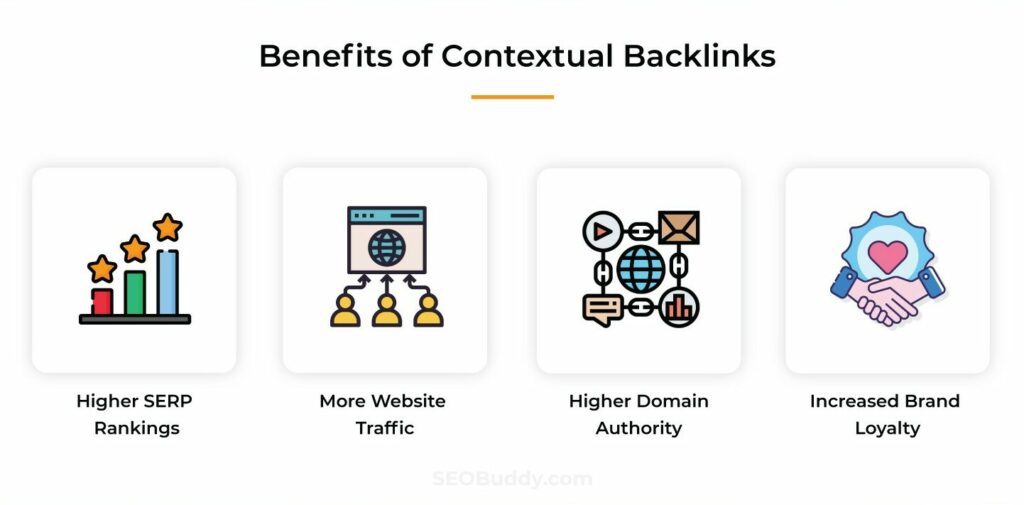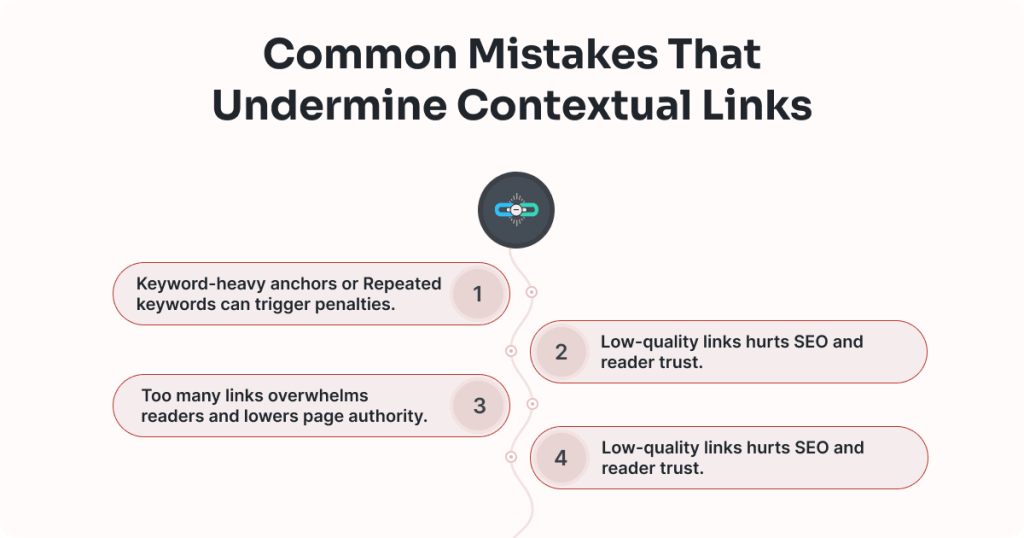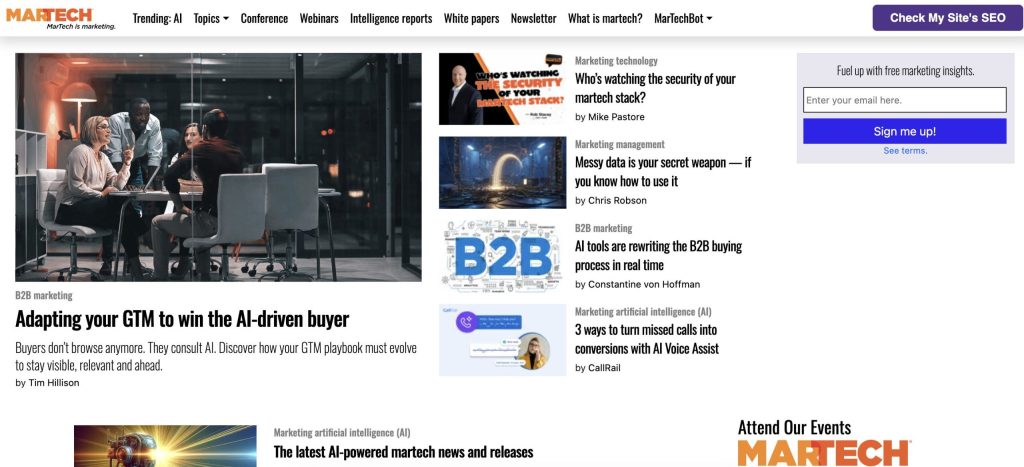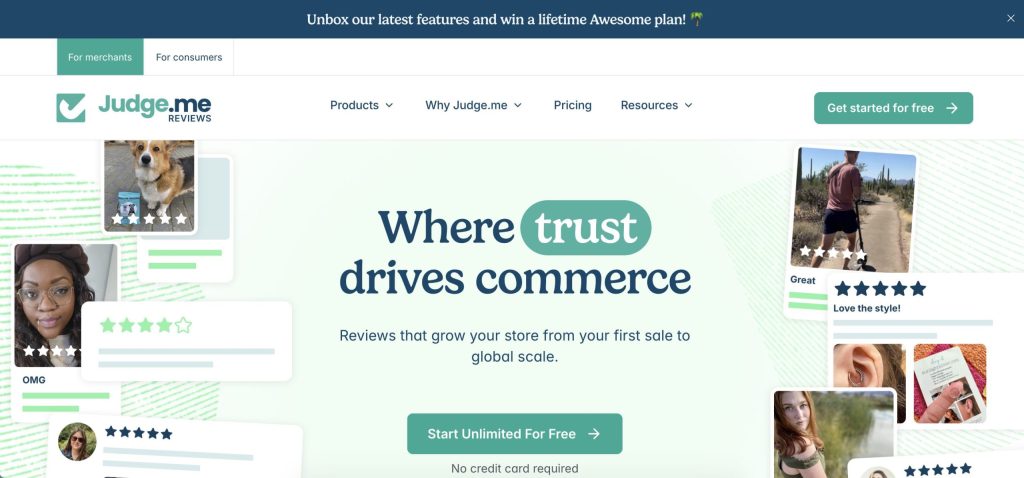You don’t need more backlinks. You need the right backlinks.
Niche-relevant backlinks aren’t just an SEO checkbox. They’re your ranking advantage, your brand trust booster, and your traffic funnel – all rolled into one.
If you’re still chasing random high-DA links with zero contextual relevance, you’re bleeding budget and authority.
This article breaks down everything you need to know: how niche backlinks work, why they beat generic links, how to find them, and how to build them the smart way – with specific tactics for SaaS, legal, e-commerce, and local businesses.
We’ll also flag the most common traps that ruin backlink profiles and explain why balance beats obsession when it comes to link diversity.
In this article…
- What are Niche-Relevant Backlinks?
- Why Niche-Relevant Backlinks Matter for Rankings
- How To Find Relevant Link Opportunities in Your Industry
- How To Get Niche-Relevant Backlinks: Tactics That Work
- Do Niche-Relevant Backlinks Outperform High Authority Links?
- Common Link Building Mistakes to Avoid in Niche SEO
- Best Niche-Specific Strategies
- Why a Diversified Link Profile Still Wins
- Conclusion: The Facts on Niche-Relevant Backlinks
- FAQ: Niche-Relevant Backlinks
Key Takeaways
- Niche-relevant backlinks beat generic ones because they signal topical authority to Google and drive higher-converting traffic.
- Context matters more than domain authority when it comes to sustainable rankings. A DR 30 site in your niche can outperform a DR 90 site in another.
- Link placement strategies differ by niche – what works for SaaS might flop for legal or local.
- Relevance comes from content alignment, anchor text, and site audience – not just the category of the linking domain.
- Diversifying with both niche and authority links gives you strength and stability in your backlink profile.
What are Niche-Relevant Backlinks?
They’re backlinks from websites that share your industry, audience, or content theme – and Google notices.
Forget about link volume. Niche relevance tells search engines, “This site belongs in this space.” It’s about contextual alignment, not just metrics.

Google highlights that links from relevant, authoritative sources contribute to a site’s credibility and topical relevance. For instance, Google’s blog notes that links from prominent, contextually relevant websites are a “good sign that the information is well trusted,”
Let’s break it down:
- A backlink from a health blog to a fitness coach’s site = relevant
- A backlink from a finance directory to a pet store = irrelevant
- A backlink from a low-DA but niche-specific site often delivers more ranking power than a random high-DA media link
Here’s what makes a backlink niche-relevant:
| Factor | Description |
| Content Match | The linking page discusses the same or related topic |
| Audience Overlap | The site’s readers would logically engage with your content |
| Anchor Text Alignment | The link text reinforces your niche keywords |
| Topical Authority | The linking domain is known for your topic area |
Backlinks with these traits build topical authority – a key Google ranking factor. You’ll show up higher in search results for the terms your audience actually uses.
Why Niche-Relevant Backlinks Matter for Rankings
Because Google trusts links that come from contextually related sources – and trust drives rankings.
Niche-relevant backlinks aren’t just about traffic. They’re about authority. When Google sees your site getting links from others in the same industry, it strengthens your topical signals.

That means higher placement for more keywords, faster indexing, and better ranking stability.
Here’s what’s really going on behind the scenes:
- Google’s algorithms use topic clusters, not just keywords or domain rating. A niche-relevant backlink supports your E-E-A-T (Experience, Expertise, Authoritativeness, Trustworthiness).
- Relevance helps avoid penalties. Irrelevant links – even high-authority ones – can be flagged as manipulative, especially in YMYL niches (finance, health, legal).
- Engaged traffic performs better. Users who click through niche-relevant links are more likely to convert, stay longer, and engage – all positive ranking signals.
Traffic Quality: Niche vs. General Backlinks
| Metric | Niche-Relevant Link | General Link |
| Bounce Rate | Lower | Higher |
| Time on Page | Longer | Shorter |
| Conversion Rate | Higher | Lower |
| Google Trust Signal | Stronger | Weaker |
Example: A SaaS startup getting backlinks from SaaS review sites, industry blogs, or integrations pages will dominate long-tail searches over competitors chasing Forbes or HuffPost links with no topical connection.
Now that we’ve established why they matter, let’s hit the tactics.
How To Find Relevant Link Opportunities in Your Industry
Start with relevance, filter by authority, then verify traffic. That’s your backlink shortlist.
Finding niche-relevant link opportunities isn’t about scraping giant lists or emailing random sites. It’s about targeting websites that share your space – content-wise, customer-wise, and keyword-wise.

Here’s how to build a list that actually converts into SEO power:
Step-by-Step Opportunity Breakdown:
- Competitor Backlink Analysis
- Use Ahrefs, SEMrush, or SEO SpyGlass
- Filter by referring domains + sort by DR + topical match
- Look for links on blogs, directories, guest posts, podcasts
- Use Ahrefs, SEMrush, or SEO SpyGlass
- Industry Blog Aggregators
- Sites like Feedly, AllTop, and niche subreddit link pages
- Collect blogs and publications regularly sharing content in your niche
- Sites like Feedly, AllTop, and niche subreddit link pages
- “Best of” & Roundup Pages
- Google operators: “best [industry] tools” + intitle:roundup
- These are ready-made backlink opportunities for outreach
- Google operators: “best [industry] tools” + intitle:roundup
- Supplier, Partner & Integration Pages
- If you have SaaS or B2B integrations, ask for backlinks from partner websites
- Local businesses can leverage local chamber of commerce or vendor pages
- If you have SaaS or B2B integrations, ask for backlinks from partner websites
- Niche Directories (Not Spammy)
- Use niche-specific directories like Product Hunt (for SaaS), Avvo (for legal), or Houzz (for home services)
- Avoid general directories unless there’s clear relevance
- Use niche-specific directories like Product Hunt (for SaaS), Avvo (for legal), or Houzz (for home services)
Tools That Help:
| Tool | Use Case |
| Ahrefs | Competitor backlink scraping |
| Hunter.io | Email outreach & validation |
| BuzzSumo | Find influencers & top blogs |
| SurferSEO | Relevance score & SERP data |
Tip: Filter for websites that rank for your target keywords – this ensures the link is coming from a relevant, trusted source.
Once you’ve built your prospect list, the next step is execution.
How To Get Niche-Relevant Backlinks: Tactics That Work
Skip the shotgun approach. Use targeted, repeatable tactics that align with your niche.
You don’t need 100 outreach emails a day. You need 5-10 solid opportunities per week with high relevance and contextual placement. Here’s how pros do it:
Proven Tactics for Building Niche-Relevant Links
1. Guest Posting with Topic Relevance
- Find industry blogs accepting contributions
- Pitch topics that closely relate to both your business and the blog’s content
- Always insert links naturally inside the content (not bios)
Example: A cybersecurity company writing for a DevSecOps blog about breach detection tools.
2. Broken Link Building
- Use Ahrefs or Screaming Frog to find broken outbound links on niche blogs
- Create replacement content that fits the same context
- Outreach with value: “Found a broken link, here’s a better one”
| Tool | Use Case |
| Check My Links | Chrome extension for fast scans |
| Ahrefs | Crawl for 404 pages by topic |
3. Linkable Assets (Guides, Calculators, Templates)
- Create hyper-niche resources people naturally link to
- Promote in communities, newsletters, and outreach campaigns
Example: An edtech brand offering a free school grading calculator to education blogs.
4. Niche Roundup Inclusion
- Search: intitle:”roundup” + [your niche]
- Reach out to editors with a relevant article or tool to include
5. Qwoted + Niche PR
- Use Qwoted or Terkel to land press in niche publications
- Filter out general media and stick to industry blogs or trade outlets
Email Outreach Framework (Witty + Direct)
Subject: Quick question about [Article/Topic]
Hey [First Name],
Loved your piece on [Title] – especially the part about [Specific Insight].
I run [Your Brand], and we recently published [Your Content Title] that expands on [Related Point]. Thought it might be a solid fit for your readers.
Let me know what you think. Either way – great work on the article.
Cheers,
[Your Name]
These tactics work in any vertical – the key is tailoring content, pitch, and placement to the site’s audience and editorial flow.
Do Niche-Relevant Backlinks Outperform High Authority Links?
Yes – if you’re chasing rankings in competitive verticals, relevance trumps raw authority.
Many marketers chase DR 90+ backlinks from massive publications. But if those sites have no topical connection, the value drops fast. Google prioritizes contextual signals – not just metrics.

Here’s how relevance stacks up against authority in the real world:
Performance Comparison: Relevance vs. Authority
| Attribute | High-DR, General Link | Low-DR, Niche-Relevant Link |
| SEO Ranking Boost | Short-term bump | Long-term stability |
| Relevance to Content | Weak | Strong |
| Traffic Quality | Low conversion | High conversion |
| Anchor Text Impact | Lower | Higher |
| Penalty Risk | Higher (if overused) | Lower |
Case Example: SaaS Company Link Test
A mid-tier SaaS brand ran a 3-month A/B test:
- Group A: 30 backlinks from DR 70–90 generic sites (listicles, news, syndication)
- Group B: 20 backlinks from DR 30–50 niche SaaS and MarTech blogs
Result:
- Group B pages ranked for 2.3x more keywords
- Average traffic per page was 44% higher
- Bounce rate was 38% lower
This isn’t theory – it’s how Google now processes topical signals using semantic indexing (LSI) and E-E-A-T markers. The algorithm looks for contextual trust, not just popularity.
That’s also why Google rewards sites that are frequently linked to by other authoritative sites in the same field.
If you’re building links in e-commerce, law, healthcare, or fintech – niche context isn’t optional. It’s mandatory.
Common Link Building Mistakes to Avoid in Niche SEO
Most link-building fails aren’t about effort – they’re about bad targeting, sloppy execution, or ignoring context.

If your backlinks aren’t lifting rankings or are getting deindexed months later, chances are you’re making one of these core mistakes. Niche relevance demands precision – here’s what to watch for:
Top Mistakes to Avoid
1. Buying Irrelevant Links from Link Farms
- Sites that accept any content, on any topic, from anyone.
- These often have inflated DR but zero real traffic.
- You end up paying for a link that adds no trust and might get penalized.
2. Over-Optimized Anchor Text
- Repeating exact-match anchors like “best CRM software” every time.
- Looks unnatural to Google and raises spam flags.
- Use variations, branded, and natural sentence fragments.
| Anchor Type | Example | Safe Usage Rate |
| Exact Match | best crm software | <10% |
| Branded | HubSpot | 40–50% |
| URL | www.yoursite.com | 20% |
| Partial/Natural | tools for sales teams | 20–30% |
3. Ignoring Traffic Metrics
- Don’t build links on sites with 0–10 organic visitors/month.
- Traffic is a proxy for Google’s trust in the site.
- Use tools like SimilarWeb, Ahrefs, or SEMrush to verify before pitching.
4. Forgetting Regional or Local Context
- Linking to a U.S.-only service from a global blog with no overlap = irrelevant.
- If you’re local, link from region-specific publications, blogs, directories.
5. Not Refreshing Outdated Link Pages
- Outdated guest posts, broken links, or irrelevant content can dilute your authority.
- Audit your backlinks quarterly and clean up what’s hurting your profile.
Bonus Mistake: Link velocity spikes from sudden link buying binges. Slow, steady, niche-relevant wins.
Best Niche-Specific Strategies
No one-size-fits-all here – different industries need distinct backlink strategies tailored to their content, buyer behavior, and digital ecosystem.
Let’s break down what works in each niche.
SaaS & B2B Tech
SaaS companies live and die by organic lead volume – and niche backlinks from tech-savvy platforms drive the right kind of traffic.
Start by contributing to MarTech and software review blogs that compare tools or spotlight new trends.

If your software integrates with others, reach out to those partners and request backlinks on their integrations pages.
Affiliate marketers and SaaS tool roundups are another goldmine. They often include backlink-rich posts comparing platforms – you want your brand in those lists.
Finally, focus on building high-quality comparison pages (e.g., “Your Tool vs. Competitor”) that are perfect for natural backlinks from tech reviewers.
SaaS Link Sources Summary:
- Guest posts on SaaS/MarTech blogs
- Integrations and partner pages
- Affiliate tool roundups
- Comparison pages
Local Businesses
Local businesses need links that reinforce their regional footprint. This means getting listed on city business directories and chambers of commerce – but not stopping there.
Reach out to neighborhood blogs, local event sites, and community pages to pitch collaboration content or sponsorships.

Use testimonial link-building by leaving detailed reviews (with permission) for local vendors or partners. These reviews often get published on their websites with a backlink.
You can also tap into local press or city Facebook groups to find publishers looking for business stories or local insights.
Local Link Sources Summary:
- Regional business directories and chambers
- Neighborhood blogs or sponsorship mentions
- Supplier testimonials with backlinks
- Local press and events pages
Law Firms
Law firm SEO demands high authority and contextual trust. You’ll need backlinks from legal publications, university blogs, and verified directories.
Start by submitting to trusted legal directories like Avvo or Justia – but supplement that with real content.
Moz’s annual whitepaper surveyed 500+ SEO professionals and analyzed link profiles of top-ranking sites. It found that links from niche-relevant sources (e.g., industry blogs, directories like Avvo for legal) were 3x more likely to improve rankings for competitive keywords than generic high-DA links.

Writing guest posts on niche law blogs or being interviewed on legal podcasts positions your firm as an authority. Law firms that invest in thought leadership tend to dominate competitive legal terms.
Also, create short explainers on complex topics. Legal bloggers frequently link to those for clarity and citations.
Legal Link Sources Summary:
- Legal directories (Avvo, Justia)
- Guest posts on law blogs
- Podcasts in the legal space
- Explainer content for reference links
eCommerce Brands
eCommerce SEO is fueled by product trust. You need backlinks from review sites, blogs, and influencers who actually try (or talk about) your products.
Reach out to bloggers for gift guide placement or seasonal roundups – these pages naturally attract traffic and links.

YouTube creators and product unboxers also offer embedded backlinks in descriptions or blog extensions of their video content.
According to Semrush, sites with links from niche-specific domains (e.g., SaaS review sites for tech companies) ranked for 2.5x more long-tail keywords and had 40% lower bounce rates than those with generic links.
The study also confirmed that a balanced link profile (40% niche-relevant, 30% high-authority, 30% other) reduced penalty risks and improved ranking resilience, aligning with the article’s emphasis on diversified profiles.
Invest in long-form product guides (e.g., “Best Running Shoes for 2025”) – they attract editorial links if done right.
Affiliate marketers are your backlink allies – especially those who build SEO-first content.
Ecom Link Sources Summary:
- Product roundups and gift guides
- YouTube or influencer reviews
- Long-form product buying guides
- Affiliate blog placements
Fintech & Cybersecurity
Fintech and cybersecurity are both high-trust, high-risk industries. Backlinks here require careful vetting – and editorial quality.
Create original research reports or case studies, then pitch them to fintech reporters and tech bloggers. Use Qwoted to land expert mentions in niche sites like Security Boulevard or Finextra.

Cybersecurity professionals can also pitch guest content to DevSecOps blogs or contribute to vendor publications.
Don’t overlook email newsletters – many niche fintech writers include links in their weekly industry recaps.
Fintech & Cyber Link Sources Summary:
- Original research and whitepapers
- HARO/PR placements in niche blogs
- Guest contributions to vendor blogs
- Newsletter/editorial inclusion
Why a Diversified Link Profile Still Wins
Relevance builds trust. Authority builds power. Together, they future-proof your rankings.
You don’t want all your links coming from niche blogs – just like you don’t want all your links coming from DR 90 general media sites.

Balance is what Google expects. Balance is what builds a natural backlink profile.
Here’s how it works:
- Niche-relevant backlinks tell Google what your site is about
- High-authority backlinks tell Google who trusts you
- Branded and homepage links give strength to your domain
- Internal deep links push relevance down to individual pages
Diversification doesn’t mean randomness – it means controlled variation across source type, content relevance, anchor text, and page destination.
Link Profile Breakdown (Sample Ratio)
| Link Type | Ideal Share of Profile |
| Niche-Relevant Contextual | 40–50% |
| High Authority (General) | 20–30% |
| Branded / Homepage Links | 10–15% |
| Citations / Directories | 5–10% |
| Guest Posts / Thought Pieces | 10–15% |
What Happens Without Balance?
- All niche = limited domain authority
- All general = no topical relevance
- All exact-match anchors = red flag for spam
- All homepage links = poor content visibility
Google is watching for link schemes – but it’s also tracking topical authority growth. A diversified profile is the safest, most scalable way to build ranking momentum without risking penalties.
Conclusion: The Facts on Niche-Relevant Backlinks
Niche-relevant backlinks matter because they come from sites that actually relate to your industry.
They signal to Google that your site belongs in that space, improving rankings and bringing in higher-quality traffic.
These links come from websites with similar content, audiences, or topics – and that alignment makes them more powerful than generic backlinks with high domain ratings. Relevance builds authority where it counts.
Finding these links starts with looking at competitors, scanning industry blogs, and targeting roundup pages or partner directories. The key is targeting sources your audience already engages with.
Building them takes focused execution: writing guest posts on relevant blogs, replacing broken links with better content, and creating resources people in your niche want to reference.
Each industry requires its own approach. What works for a SaaS tool won’t apply to a local contractor or a law firm. Tailoring your link strategy to your vertical keeps the links natural and effective.
At the same time, no backlink profile should be one-dimensional. A healthy mix of relevance and authority gives your site credibility and ranking power without triggering red flags.
FAQ: Niche-Relevant Backlinks
What makes a backlink niche-relevant?
It comes from a site with similar content, audience, or industry focus. Relevance is based on topic alignment, not just category.
Are niche backlinks better than high-authority links?
Yes, when it comes to ranking for targeted keywords and driving quality traffic. Relevance adds more SEO value long term.
How can I find niche backlink opportunities?
Use tools like Ahrefs or SEMrush to scan competitor links. Look for industry blogs, roundups, integrations, or related podcasts.
Can I use directories for niche backlinks?
Yes, but only if they’re relevant to your industry. Avoid general or spammy directories with no editorial standards.
What’s a safe anchor text strategy?
Use a mix: branded, natural phrases, and occasional exact match. Overuse of keyword-rich anchors increases spam risk.
How many backlinks do I need to rank?
There’s no fixed number – quality beats quantity. A few strong, relevant links can outperform dozens of weak ones.
Do niche backlink strategies differ by industry?
Absolutely. SaaS, law, e-commerce, and local businesses each need tailored approaches to get high-quality relevant links.
What’s the biggest backlink mistake to avoid?
Chasing links without checking traffic or relevance. A high-DA backlink from an unrelated site adds little value – or worse, hurts rankings.




